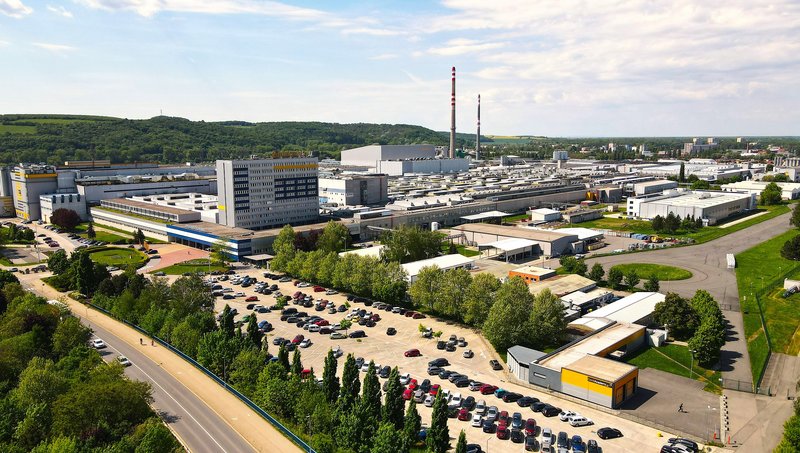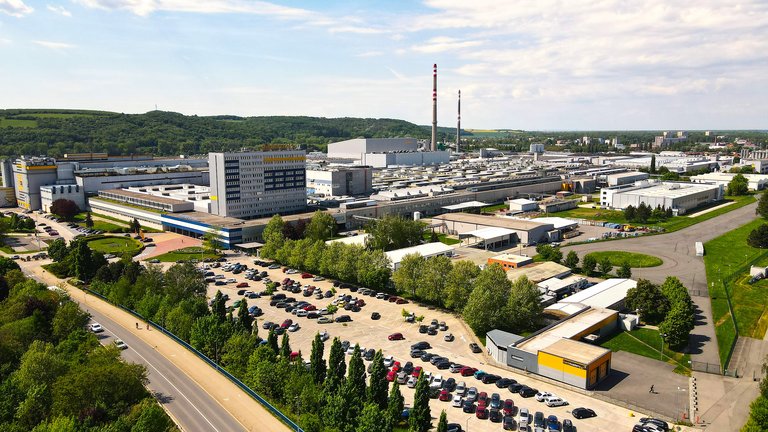Continental Tire Plant in Otrokovice Receives ISCC PLUS Sustainability Certification
- Certified documentation of origin and use of sustainable materials
- Tires group sector aiming for more than 40 percent renewable raw materials and recycled materials in its tires by 2030
- Jorge Almeida, head of Sustainability for Continental Tires: “With mass-balanced materials, we are transparently increasing the share of renewable and recycled raw materials step by step”
Hanover, Germany, June 16, 2025. The Continental tire plant in Otrokovice, Czech Republic, recently received the International Sustainability and Carbon Certification (ISCC) PLUS sustainability certification. This globally recognized standard certifies that Continental meets specific documentation requirements relating to the use of renewable and recycled raw materials. It also confirms the completely transparent traceability of the raw materials used in the production process. Certification of the raw materials enables Continental to ensure the end-to-end traceability of materials from renewable and recycled sources. For the premium manufacturer, this is a further step on the way to more than 40 percent renewable and recycled materials in its tire products by 2030. In addition to the tire plant in Otrokovice, the plants in Lousado (Portugal), Hefei (China), Puchov (Slovakia), Korbach (Germany) and Sarreguemines (France) are already ISCC PLUS-certified production sites of Continental Tires.
The certification was based on compliance with and documentation of certain processes for the mass balance of raw materials. The mass balance approach mixes fossil, renewable and recycled raw materials in existing systems and processes. The quantities used are tracked along the entire value chain and can therefore be allocated proportionately at any time. The mass balance approach enables Continental to gradually increase the proportion of more sustainable materials in its products. It ensures that the balance of certified more sustainable materials can be accurately reported.
“Our goal is to use more than 40 percent renewable and recycled materials in our tires by 2030,” says Jorge Almeida, head of Sustainability for Continental Tires. “With mass-balanced materials, we are transparently increasing the share of renewable and recycled raw materials step by step.”
“The ISCC PLUS certification for our plant in Otrokovice is further proof of our long-term commitment to sustainability and innovation,“ says Dr. Tomáš Belza, head of the Continental tire plant in Otrokovice, Czech Republic. "Being among the six Continental plants to receive ISCC PLUS certification underscores the significant progress we have made in the field of sustainability – not only at our plant, but also along the entire value chain."
Complete traceability of mass balance-certified materials
International Sustainability and Carbon Certification (ISCC) was established in 2010 as part of a multi-stakeholder initiative and is a leading global certification system aimed at promoting a traceable, sustainable, deforestation-free and climate-friendly supply chain. ISCC certifications are recognized worldwide and encompass sustainable agricultural biomass, biogenic waste and residues, non-biological renewable materials and recycled carbon-based materials. The development and implementation of various certification standards is ISCC’s tool for furthering its mission to mitigate climate change and bring greater traceability to global markets and supply chains.
As of this year, Continental has increasingly been using mass balance-certified materials in its tire production. Examples include synthetic rubbers made from bio-based and bio-circular raw materials or carbon black, which is produced in part using oil from circular processes.
The Continental tire plant in Otrokovice
The Continental tire plant in Otrokovice, Czech Republic, is one of the company’s largest production sites worldwide. With over 5,400 employees, the plant has the capacity to produce up to 19 million passenger car tires and over one million truck and industrial tires annually. It produces a wide range of products, including premium tires sold under the Continental brand and other brands in the company's portfolio.

Henry Schniewind
Head of Global External Communications
Continental Tires




